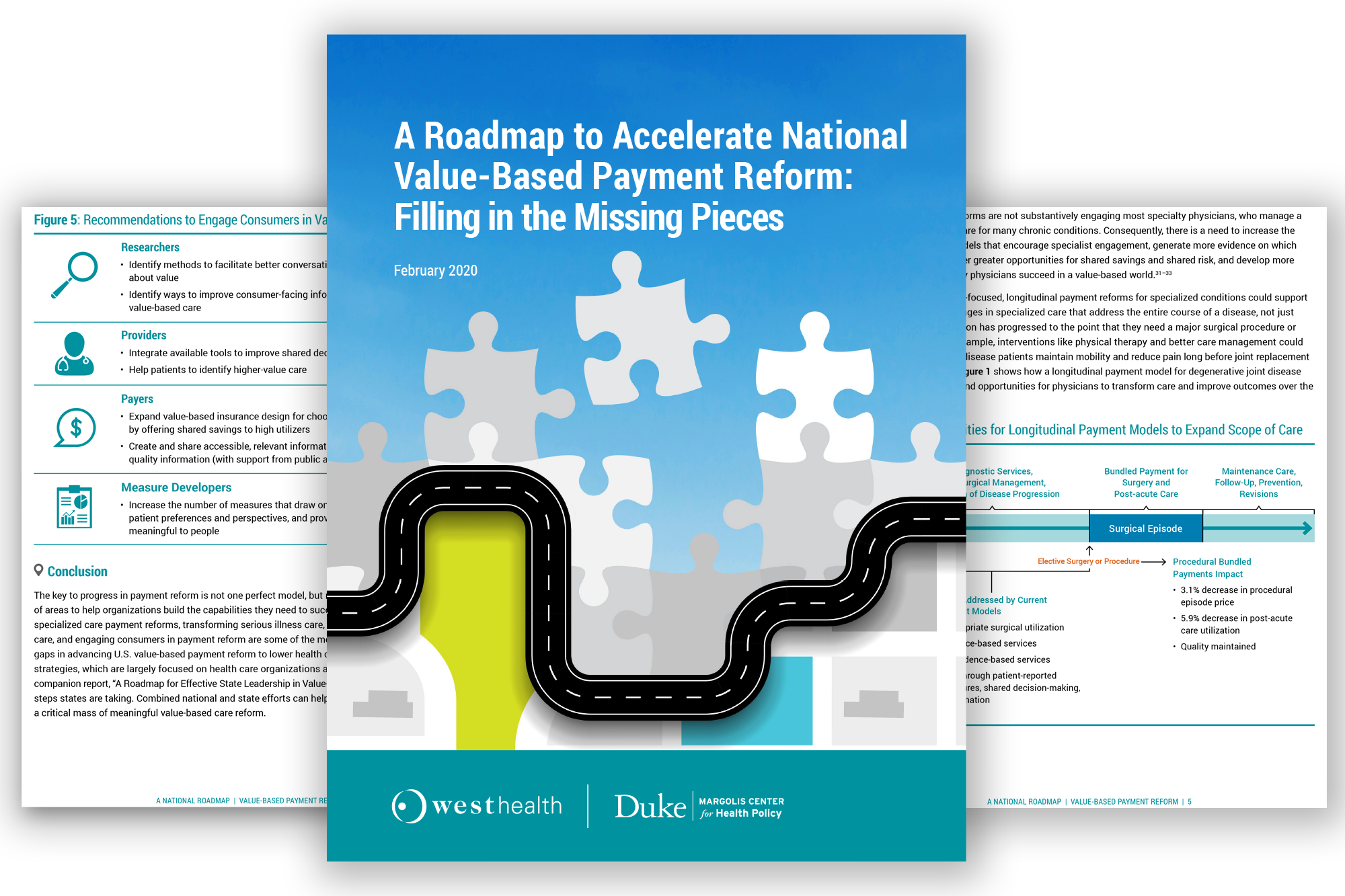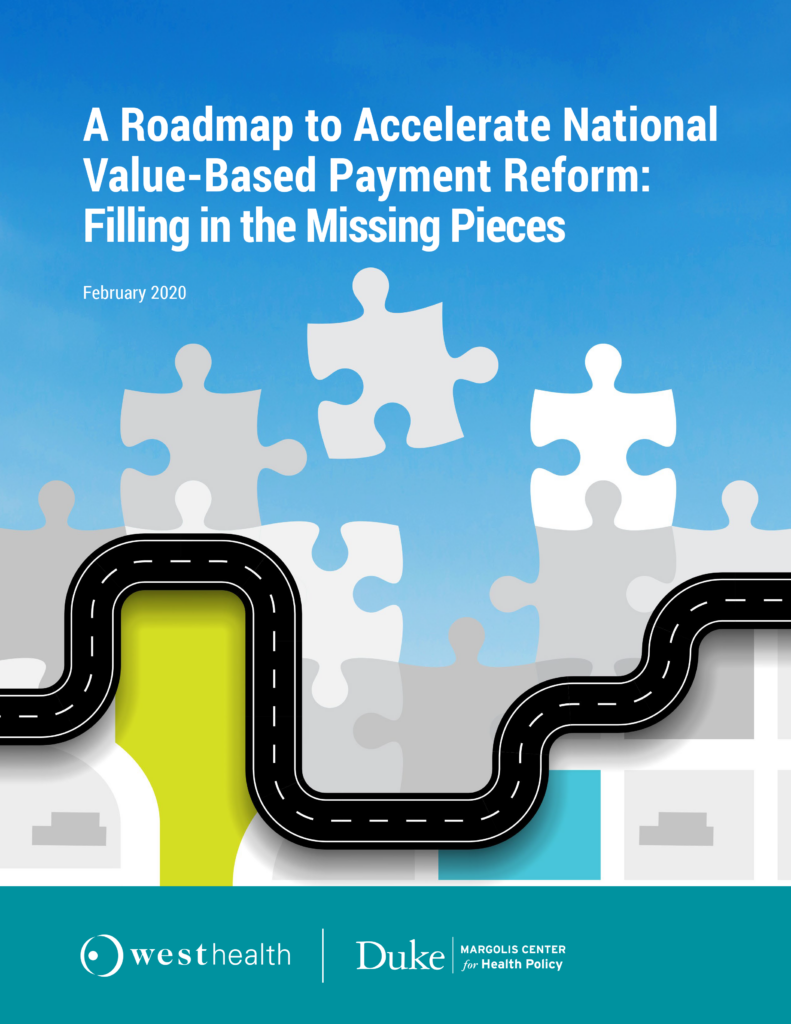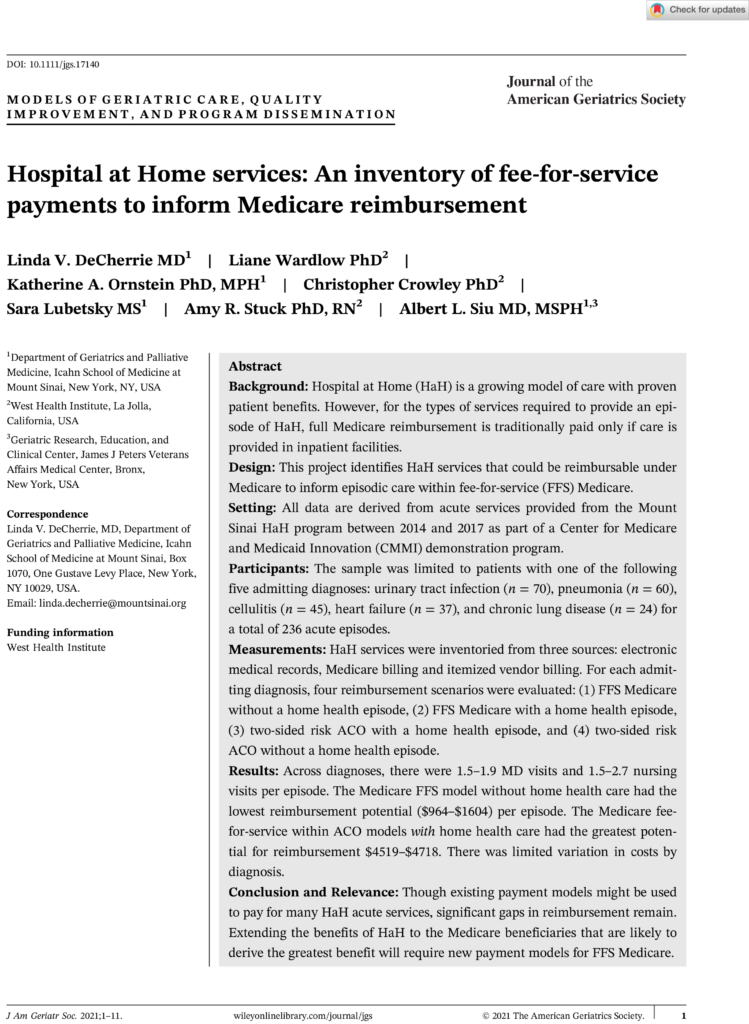The Opportunity
The U.S. is stuck in a system of volume-based (fee-for-service) care that continues to drive up costs without providing better outcomes for patients. At a time when so many Americans and employers are looking for new solutions to high prices and poor health outcomes, value-based care can slow the trajectory of costs. Instead of clinicians charging patients and insurers for every appointment, test, or service, value-based payment approaches provide clinicians with more flexibility and accountability to focus on meaningful, cost-effective services to improve their patients’ overall health. Opportunities for success include fewer visits to the doctors’ office, fewer trips to the emergency room, and ultimately the elimination of avoidable hospitalizations.
Our Goal
Real reform entails redefining financial incentives toward reduced costs, greater efficiencies, better health outcomes, and more person-centered care. Adopting value-based models of care would reward positive effects—including preventive care and improved management of diseases and conditions with fewer complications—and discourage unnecessary, low-value and potentially harmful care.

West PACE (Program of All-Inclusive Care for the Elderly)
Established with a grant from the Gary and Mary West Foundation, West PACE in North San Diego County, provides a wide range of health and support services to seniors living with chronic conditions. Participants have access to adult day programs, medical care, social services, dentistry, home care and physical, occupational, and speech therapy. Over 90% of PACE participants are able to remain in their homes and communities, and many live longer, are more socially engaged and have a better quality of life than those in nursing homes or other institutional settings.

A Roadmap for Value-Based Payment Reform
The Duke-Margolis Center for Health Policy and West Health created state and national roadmaps to provide guidance on implementing value-based payment models through the reduction or elimination of low-value care, improved patient engagement, alignment of payment reforms across multiple providers, and the strengthening of data infrastructure and analytic capabilities. The national roadmap identified four areas where evidence is promising but action has been limited for advancing value-based payment reform in the U.S. healthcare system.
- Improving opportunities for specialized care payment reforms
- Transforming serious illness care
- Reducing and eliminating low-value care
- Engaging consumers in payment reform
West Health Value-Based Care Webinar Series
West Health’s webinar series shares valuable insights, tips, and how challenges were overcome in developing innovative or disruptive home-based alternatives to hospitalizations.
American Society on Aging’s LeverAGE Podcast: Value-Based Care and Telehealth
Healthcare organizations that had already adopted value-based care models were able to pivot to telehealth more quickly during COVID-19. On an episode of ASA’s LeverAGE Podcast, West Health’s Amy Herr and Michael Kurliand discuss why that’s the case, how the use of virtual care has grown among older patients, what barriers still exist and what healthcare leaders and policymakers should do to remove those barriers and encourage growth in a sustainable way.
Taking Action
The U.S. healthcare system must accelerate the shift from fee-for-service care to alternative payment models to drive down healthcare costs and improve care quality.
Key to this shift is for major insurers and the Centers for Medicare & Medicaid (CMS) to fast-track development and deployment of effective incentives and policies that facilitate the movement of patients, providers and health systems from fee-for-service payment systems to value-based care models with two-sided risk.
Stakeholders should begin scaling successful models with enough flexibility so they can be adapted across communities and healthcare settings.
Lowering Healthcare Costs News
 October 2, 2023
October 2, 2023
Medicare Part B Spending on Macular Degeneration Treatments Associated With Manufacturer Payments to Ophthalmologists
 August 28, 2023
August 28, 2023
Regardless of Political Party, Americans Overwhelmingly Support Medicare Drug Price Negotiations
 December 5, 2022
December 5, 2022
Stress Prominent Among U.S. Adults Struggling to Pay for Care
Publications and Resources
West Health provides a variety of published reports, findings and data, as well as resources that are free and available for use.











